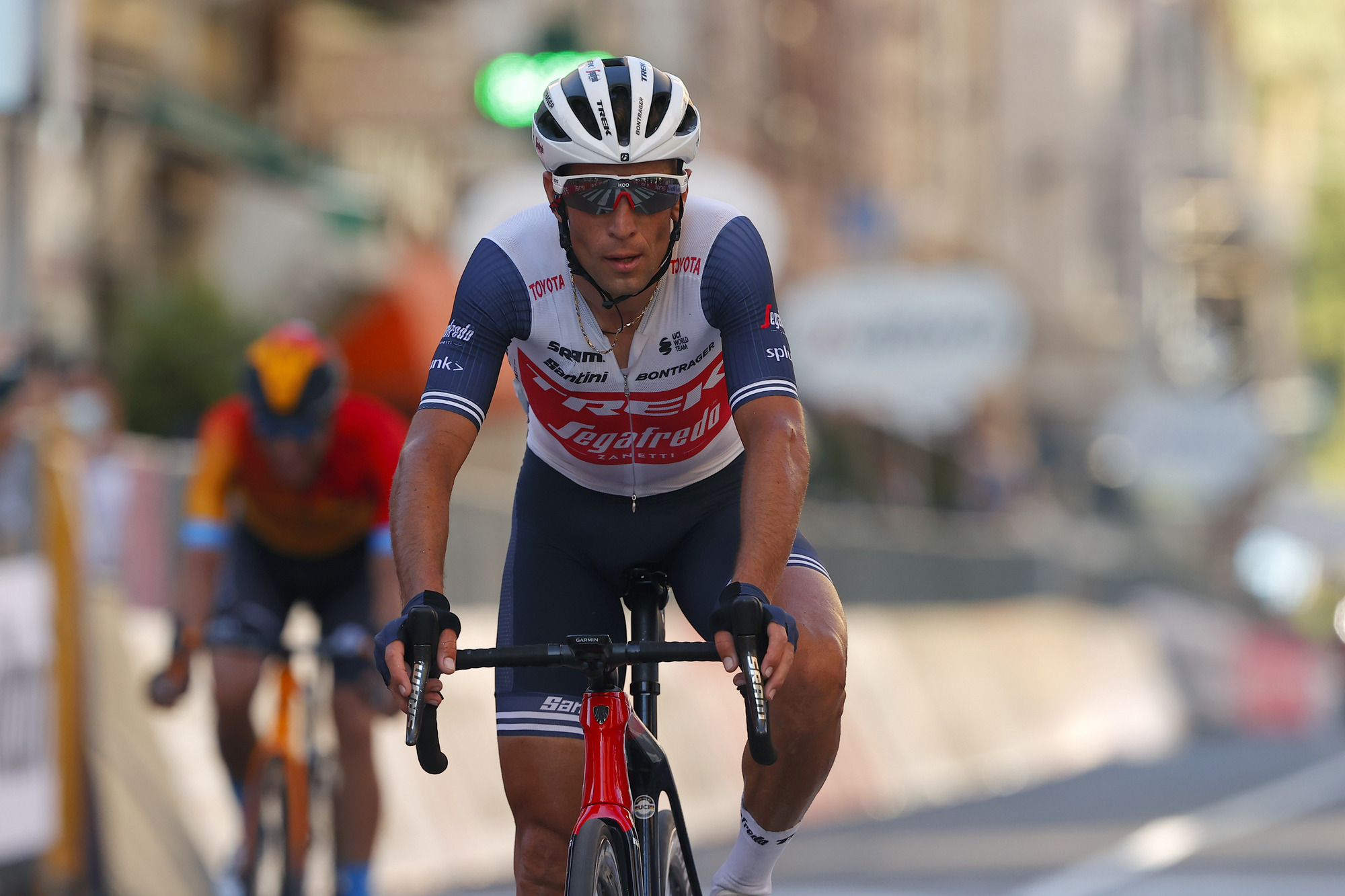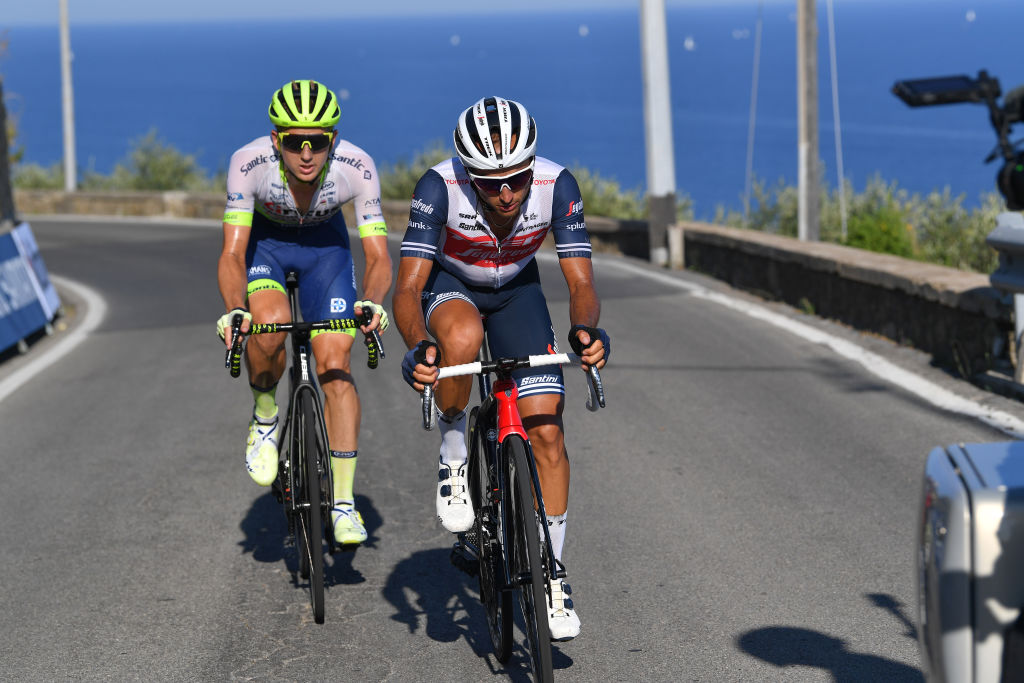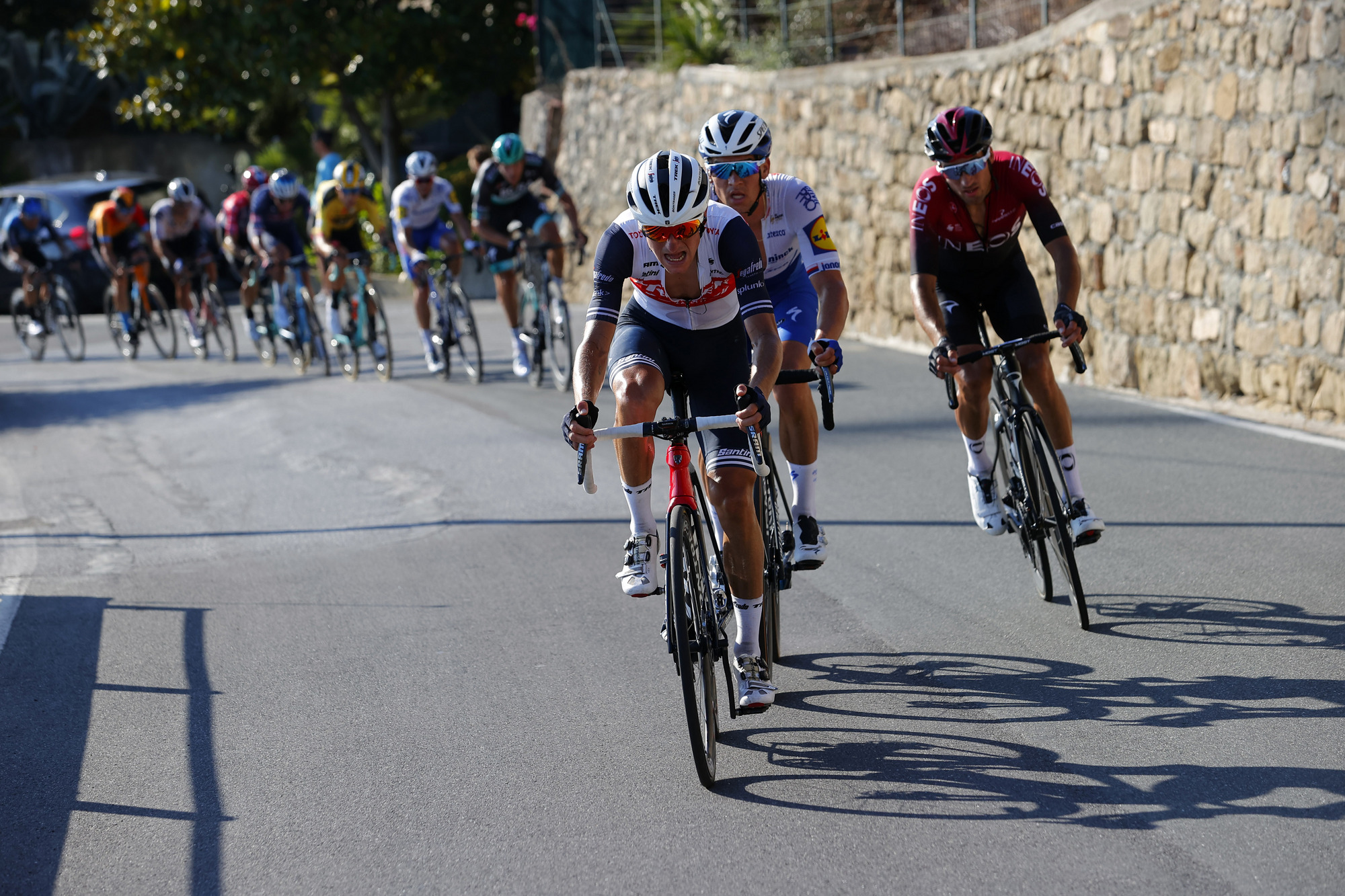Nibali lacks Poggio punch but aggressive Trek-Segafredo animate Milan-San Remo
'We didn’t have a fast finisher and so we could only play our chances by attacking' says Nibali



The Trek-Segafredo team tried to animate Milan-San Remo with a series of apparently planned attacks by different riders in the final 70km of the race. Team leader Vincenzo Nibali was the last to try his hand on the Poggio.
The 2018 Milan-San Remo winner surged away from the select group of contenders on the Poggio, sitting in the saddle to try to put out maximum power and stay aero.
His move lit up the racing but only acted as a marker for Julian Alaphilippe, who stamped on the pedals, turned a huge gear, and quickly opened a gap. Only Wout van Aert could go with him and the pair went on to fight for victory.
Nibali finished 23rd in the group of chasers just two seconds behind the duo, disappointed but with few regrets after Trek-Segafredo took on the race, reflecting the Sicilian's style of racing.
"Van Aert had already proved to be the favorite of the day, at Strade Bianche he was really strong," Nibali said.
"I'm satisfied with what I did. Maybe I attacked too early, I kind of launched the move for Alaphilippe but unfortunately I didn't have the legs to follow him. I didn’t have the explosive component that he and Van Aert had. I eased up for a moment and we were only five seconds behind them at the top of the Poggio but the race had gone."
Nibali regretted that he didn't have enough racing in his legs to match his 2018 San Remo condition. He made his return to competition at Strade Bianche last week and rode the Grand Trittico Lombardo and Milano-Torino in the week, but he's building towards an October Giro d'Italia.
Get The Leadout Newsletter
The latest race content, interviews, features, reviews and expert buying guides, direct to your inbox!
"My only regret is not having raced more because that would have helped me reacted better," he said. "It was difficult to do any better in just my fourth race, considering my characteristics."
Nibali was centre forward of the Trek-Segafredo attack, putting the ball over the top of the goal after a series of carefully studied and well-executed attacks and surges. It was perhaps not champagne cycling but it was clearly caffeine fueled.
Young Italian Nicola Conci was the first to make an attack on the fast descent of the Colle di Nava after the team had signaled their intentions by riding as a united front on the gradual climb. Jacopo Mosca attacked early on the Cipressa, with Loic Vliegen of Circus-Wanty Gobert, then Giulio Ciccone jumped away twice, as if Trek-Segafredo were trying to place riders up the road to help Nibali make audacious move. It didn't happen, but the high speeds cracked a number of sprinters, including Fernando Gaviria (UAE Team Emirates) and Caleb Ewan (Lotto Soudal).
Ciccone tried another attack early on the Poggio but was caught again. Nibali was inspired and aggressive but lacked the superb form of 2018 when he distanced everyone to win alone in the Via Roma.
"I think, as a team, we did the race as we had to do," Nibali said. "We didn’t have a fast finisher and so we could only play our chances by attacking. That's what we did. Even if the result wasn't there, it was a good race for us."
Nibali will continue his all-Italian race calendar this week with the Gran Piemonte on Wednesday and then Il Lombardia on Saturday. Van Aert and Alaphilippe will be absent from the next Monument after opting to ride the Criterium du Dauphine but Nibali, and 2019 Il Lombardia winner Bauke Mollema, will face another enfant terrible in Remco Evenepoel (Deceuninck-QuickStep).

Stephen is one of the most experienced member of the Cyclingnews team, having reported on professional cycling since 1994. He has been Head of News at Cyclingnews since 2022, before which he held the position of European editor since 2012 and previously worked for Reuters, Shift Active Media, and CyclingWeekly, among other publications.